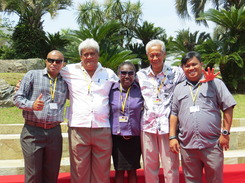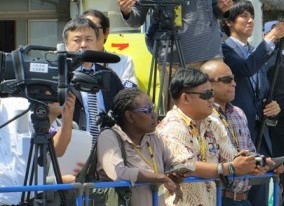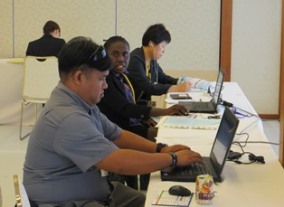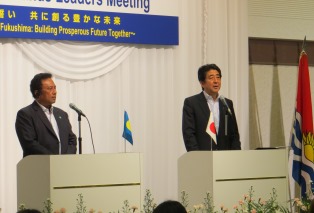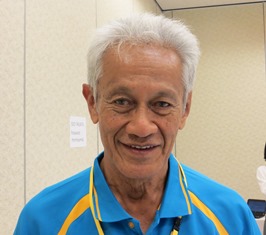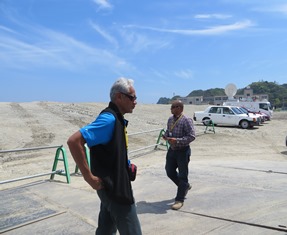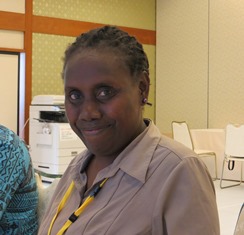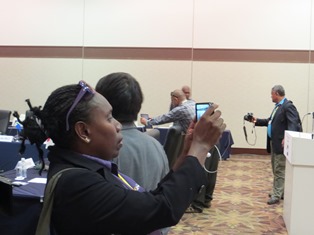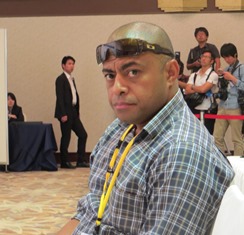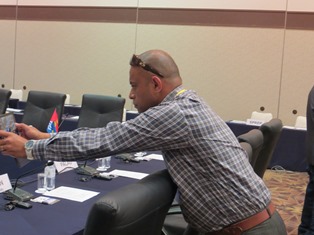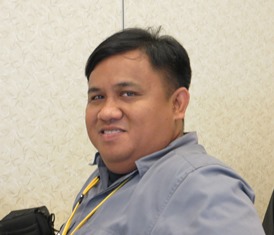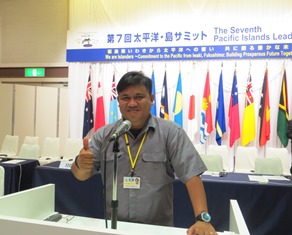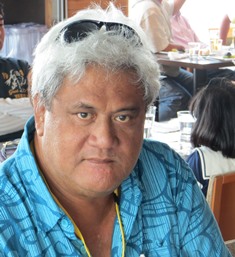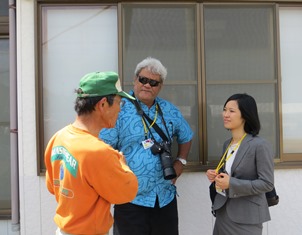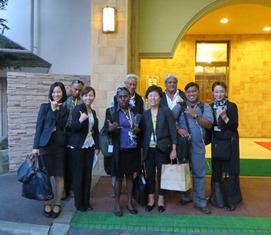The journalists invited by SPINF worked alongside other journalists from Japan and abroad, writing and issuing articles one after another. Under strict security, journalists had their movements restricted and were even excluded from some of the sessions. Yet, they managed to cover a series of events scheduled by the minute, including the opening ceremony, flower offering and inspection of quake-affected community, banquet, bilateral leaders' talks and briefings by the Ministry of Foreign Affairs.
On May 24, Japanese Prime Minister Abe and President Tommy Remengesau Jr. of the Republic of Palau, who co-chaired the meeting, held a media conference, announcing the adoption of the Fukushima Iwaki Declaration before closing PALM7. After covering the commemorative photo shoot of Prime Minister Abe and the leaders of participating nations at the conference venue, Spa Resort Hawaiians, the journalists rushed to the red carpet, just before it was taken away, for a group shot with their arms around each other's shoulders. The beaming smiles in the photograph illustrate their sense of relief and achievement for successfully completing their mission.
We asked the five journalists from the Pacific Island nations what they thought of the invitation program.
(In the alphabetical order)
Mr. Pesi Fonua/ Editor- in- Chief "Matangi Tonga" the Kingdom of Tonga
Ms. Gorethy Kenneth/ Senior Reporter, Chief of Staff "Post Courier" the Independent State of Papua New Guinea
Mr. Pita Ligaiula/ Senior Journalist "PACNEWS" the Republic of Fiji
Mr. Peter Magbanua/ Reporter "Island Times" the Republic of Palau
Mr. Mataeliga Pio Sioa/ Chief Editor "Newsline Samoa" the Independent State of Samoa
